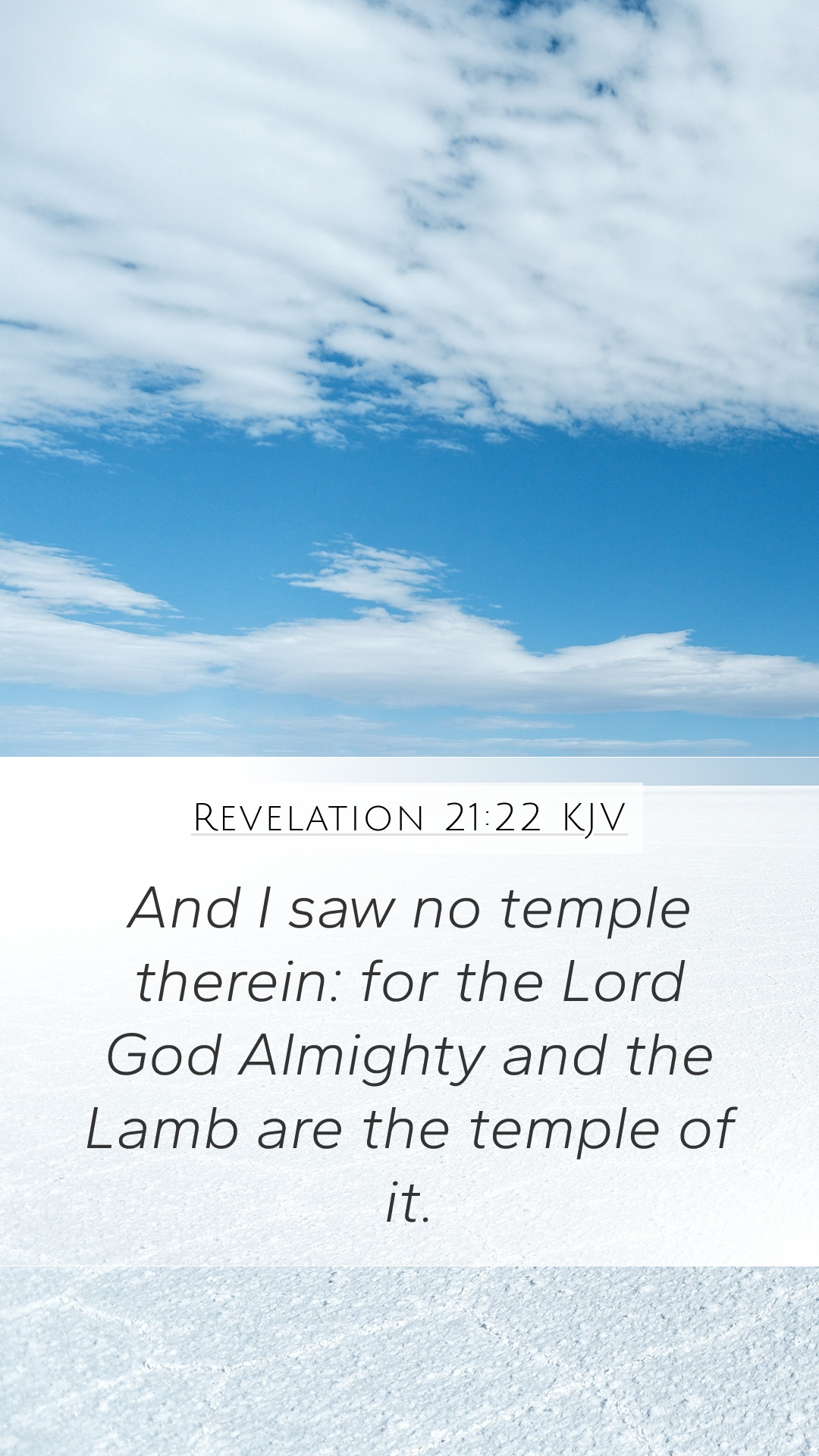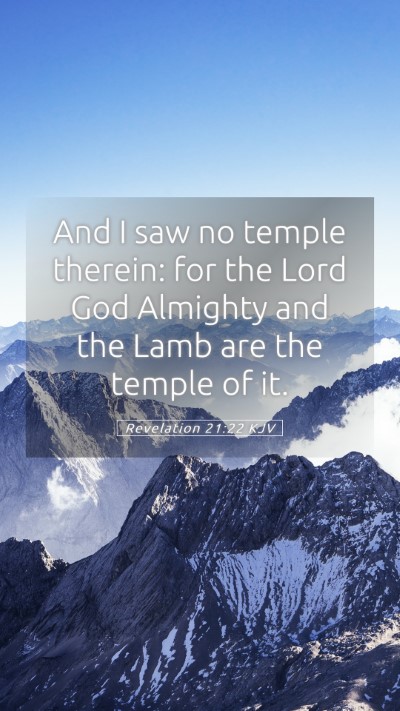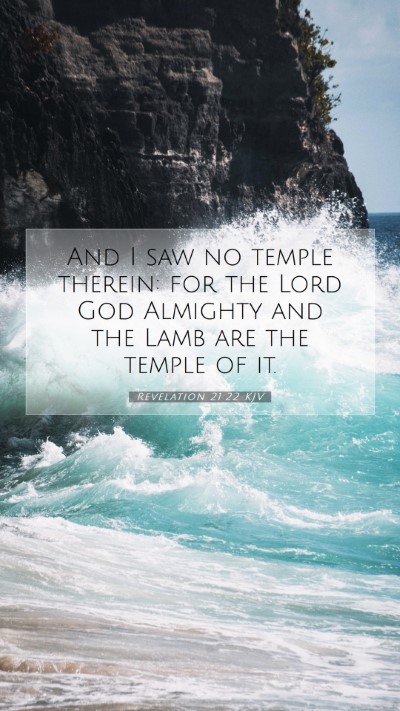Understanding Revelation 21:22: A Comprehensive Commentary
Bible Verse: Revelation 21:22 - "And I saw no temple therein: for the Lord God Almighty and the Lamb are the temple of it."
This verse encapsulates a profound theological insight regarding the nature of divine presence in the eternal state. The absence of a physical temple signifies that in the New Jerusalem, God's presence will not be confined to a specific structure; instead, God Himself and the Lamb (representing Jesus Christ) will be the temple, symbolizing an unmediated and direct communion with God.
Meaning and Significance
The essence of this verse can be unpacked through various public domain commentaries, shedding light on its meaning and significance.
-
Matthew Henry:
Henry emphasizes that the removal of the temple indicates a new order where believers experience God's glory in its fullness. He points out that the former temple's purpose was to mediate God's presence, but in the New Jerusalem, that mediation is no longer necessary. God and the Lamb are the source of divine illumination and life, making a physical structure redundant.
-
Albert Barnes:
Barnes draws attention to the implications of God and the Lamb being the temple. He interprets this as an assurance of God's continual presence with His people. The imagery reflects the ultimate fulfillment of God's promise to dwell among His people, a theme resonant throughout Scripture, culminating in the eternal state in Revelation.
-
Adam Clarke:
Clarke provides a historical context, noting that the temple was central to Jewish worship and identity. The absence of the temple in the heavenly state redefines the concept of worship. Clarke suggests that worship will not be confined to locations or rituals but will be a direct experience of God's glory and love, reframing the believer's relationship with the Divine.
Biblical Exegesis and Contextual Analysis
This verse therefore invites deeper Bible study insights and scripture analysis. It not only serves as a reflection of individual theological beliefs but also has practical implications for today’s believers seeking a connection to God.
In terms of Bible verse meanings, Revelation 21:22 urges believers to focus not on physical spaces or rituals but on the spiritual reality of God's presence. This challenges conventional notions of worship and invites the faithful into a more profound relationship with God.
Cross References
- Revelation 21:3: "And I heard a great voice out of heaven saying, Behold, the tabernacle of God is with men, and he will dwell with them, and they shall be his people."
- John 1:14: "And the Word was made flesh, and dwelt among us, (and we beheld his glory, the glory as of the only begotten of the Father,) full of grace and truth."
- Hebrews 8:1-2: "Now of the things which we have spoken this is the sum: We have such a high priest, who is set on the right hand of the throne of the Majesty in the heavens; a minister of the sanctuary and of the true tabernacle, which the Lord pitched, and not man."
Application and Modern Relevance
The application of Revelation 21:22 is pertinent for contemporary believers. This scripture encourages a shift from reliance on church buildings or rituals to a personal relationship with God through Christ. It is a powerful reminder that spiritual vitality comes from experiencing God's presence directly, facilitating Bible verse interpretations that resonate with our daily lives.
Furthermore, the concept of God as the temple emphasizes the idea that holy worship can occur anywhere, encouraging practices of applied biblical understanding in various contexts—home, workplaces, or community settings.
Conclusion
In conclusion, Revelation 21:22, devoid of a physical temple, signifies a radical transformation in how believers connect with God. It encapsulates the ultimate goal of human redemption—an intimate, unmediated relationship with the Creator. For those engaging with this verse through Bible study tools and resources, it serves as an invitation to explore the depths of divine presence and the opportunities for personal and communal worship beyond the confines of traditional settings.
Whether one is part of bible study groups or exploring through online bible study, the insights drawn from this passage enrich one's understanding of Scripture, challenge old paradigms, and invite deep reflection on the nature of God’s promises in both the present and future.


